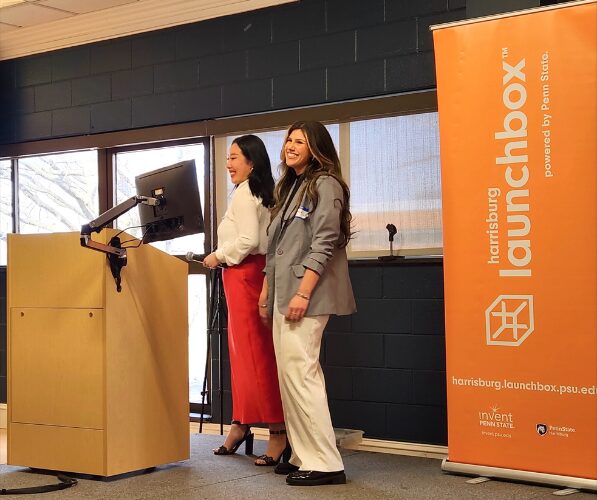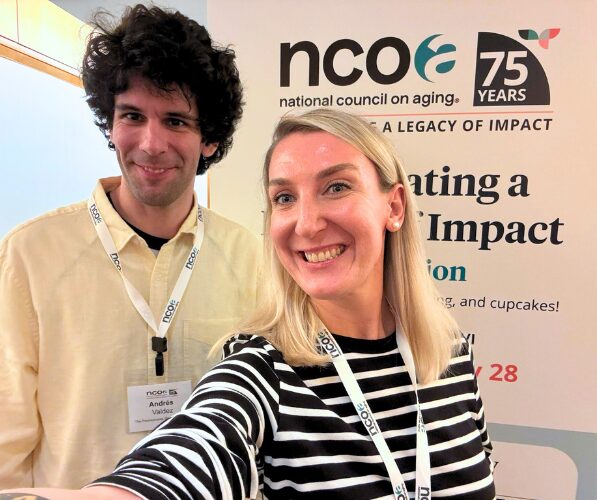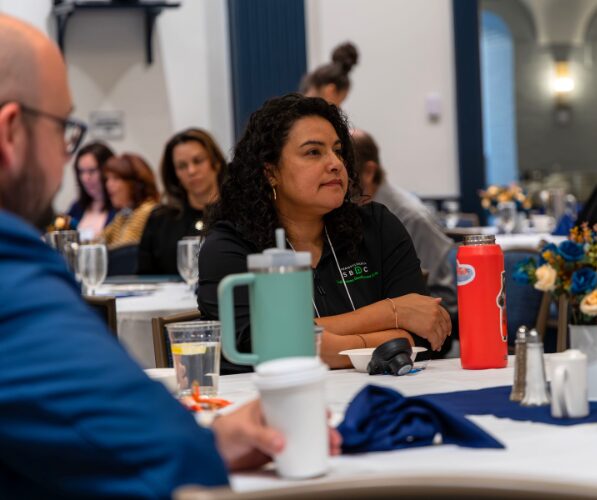Success Story
Penn State research-based startup works to improve dementia screening process
UNIVERSITY PARK – Mild cognitive impairments often go undetected until they progress to more severe stages, such as Alzheimer’s and other dementias. The Penn State research-based startup DementiAnalytics aims to revolutionize early detection and management of cognitive impairments through its AI-powered platform.
“The current diagnostic methods involve paper-based questionnaires designed in the 70s and 90s, which are often subjective and biased,” said founder Kevin Mekulu, a Ph.D. candidate of the Complex Systems Lab in industrial engineering. “Additionally, many assisted living facilities are understaffed – our technology would save those staff members time.”
Mekulu explained that DementiAnalytics started from an industry project sponsored by Highmark through the NSF Center for Health Organization Transformation. DementiAnalytics aims to work with providers in assisted living facilities to administer an AI-based screening process. This process begins with the resident speaking for a few seconds into a speech analysis application, which can be incorporated into any smart device such as smartphones, tablets or robots. If further analysis is needed, a virtual reality headset can be used to collect eye-tracking data for more comprehensive insights.
Mekulu’s team includes Penn State College of Engineering Professor Hui Yang, Dana Kazerooni, and Andy Atkins. Yang is the director of the Penn State Center for Health Organization Transformation (CHOT), the Editor-in-Chief for IISE Transactions Healthcare Systems Engineering, and is also an affiliated faculty member with the Penn State Clinical and Translational Science Institute (CTSI) and the Institute for Computational and Data Sciences (ICDS). Atkins is a Mentor in Residence through Invent Penn State’s Startup Leadership Network, an invitation-only, membership-based group of serial entrepreneurs that meets with Penn State tech startups throughout the year to provide guidance and expertise to accelerate their technology development and market entry.
Mekulu recently participated in the Invent Penn State regional NSF I-Corps short course program and is currently in the 2024 summer NSF I-Corps National Teams program to begin commercializing DementiAnalytics technology.
“The short course program helps researchers gain valuable insight into entrepreneurship, develop skills in connecting with customers, and prepare for the rigorous National Teams program,” Mekulu said. “Our key takeaway was the importance of customer discovery and getting out of the building to ask people questions to really figure out who the customer is – it’s not as easy as it sounds. Initially, we thought our primary customers would be neurologists in clinics. After the short course, we had a better idea, but even then, it wasn’t fully clear. We had to go through the National Teams program to get a more definite idea.”
Through the National Teams program, Mekulu and his team received grant funding to complete 100 customer interviews. The program also significantly improves the chances of a research startup like DementiAnalytics receiving SBIR/STTR funding.
“We’ve finally found a target market because of the I-Corps programming,” Mekulu said. “That was the big question. A lot of people were asking, ‘Who are your customers?’ I didn’t have an answer to that question, but now I can articulate who my customers are, and I also have a business model canvas, which includes the value proposition, end users, decision-makers, and revenue streams. Things are a lot clearer now.”
Mekulu recently completed the Ben Franklin Technology Partners TechCelerator program and pitch competition. He also received an award from the Penn State College of Medicine to participate in the College of Medicine Innovation Fellows Program, a commercialization program specific to healthcare technologies. In addition to participating in this year-long program, Mekulu plans to apply for SBIR/STTR funding and collaborate with the Center for Healthy Aging and CHOT.
“I definitely recommend any researcher at Penn State to go through these programs. The I-Corps program forces you to get out of the building and talk to as many people as possible. You’re not just doing customer discovery but also building relationships,” Mekulu said. “During the customer discovery process, a few people turned out to be willing to test my technology, so it’s also a customer acquisition strategy. That’s something we researchers need to learn – how to form business relationships and develop that business model canvas, both of which are extremely useful in the entrepreneurship world.”
About NSF I-Corps
Penn State University is part of the NSF I-Corps Mid-Atlantic Hub, a network of universities, NSF-funded researchers, established entrepreneurs, local and regional entrepreneurial communities, and other federal agencies. Hubs work collaboratively to build and sustain a diverse and inclusive innovation ecosystem throughout the United States.







